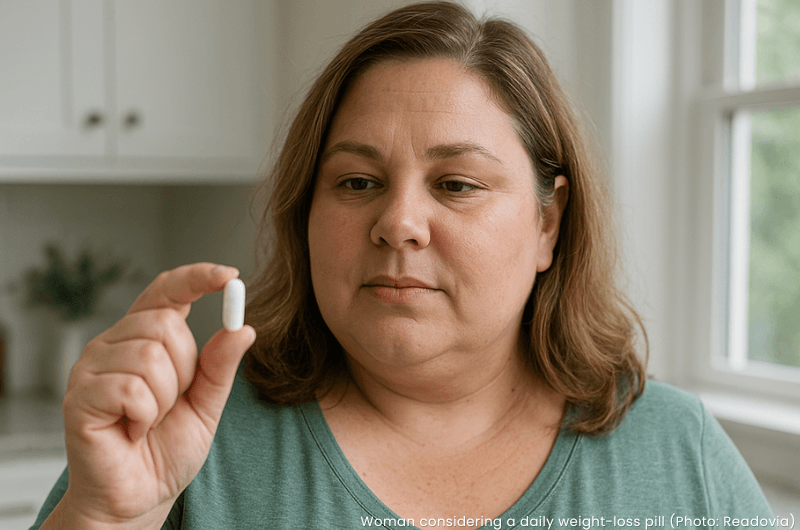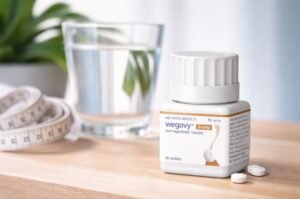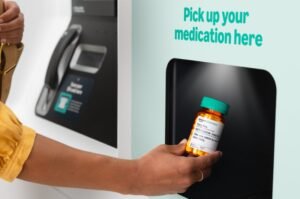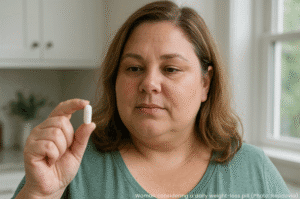A new weight-loss pill from Eli Lilly could soon rival today’s most popular injectable drugs—without the needles.
In a major Phase 3 study just unveiled, the pharmaceutical giant’s new oral drug, orforglipron, matched the performance of injectable heavyweights like Ozempic and Mounjaro for both weight loss and blood sugar control. And unlike those blockbusters, this one doesn’t require a needle—or a refrigerator.
Participants taking the highest dose of orforglipron lost an average of 7.9% of their body weight over 40 weeks, edging out similar injectable treatments. A1C blood sugar levels dropped significantly, and side effects were on par with what’s already seen in the market: mostly nausea and occasional GI discomfort.
Oral Convenience Disrupts the Needle Barrier
This is where orforglipron could really change the game: it’s a pill. That alone could upend access, adoption, and equity in obesity care. No weekly injections. No refrigeration. No special storage. Just one tablet a day.
It’s also easier to manufacture and distribute globally—making it far more viable in low-resource regions. For patients who are needle-averse (which, let’s be honest, is a lot of us), this format could be the deciding factor in starting and sticking with treatment.
What This Means for the Market
- Fewer barriers = wider adoption. A pill could draw in patients who’ve resisted GLP-1s so far.
- Regulatory filings are coming. Lilly plans to seek approval for weight-loss use by late 2025.
- Other pharma players are on notice. Expect competitors to speed up their oral R&D pipelines—or scramble to catch up.
The Takeaway
Eli Lilly’s oral GLP-1 might not just compete with Ozempic and Mounjaro—it might redefine the space entirely. And while it’s not yet on shelves, the signal is clear: the future of obesity and diabetes care may soon come in a bottle, not a syringe.



































